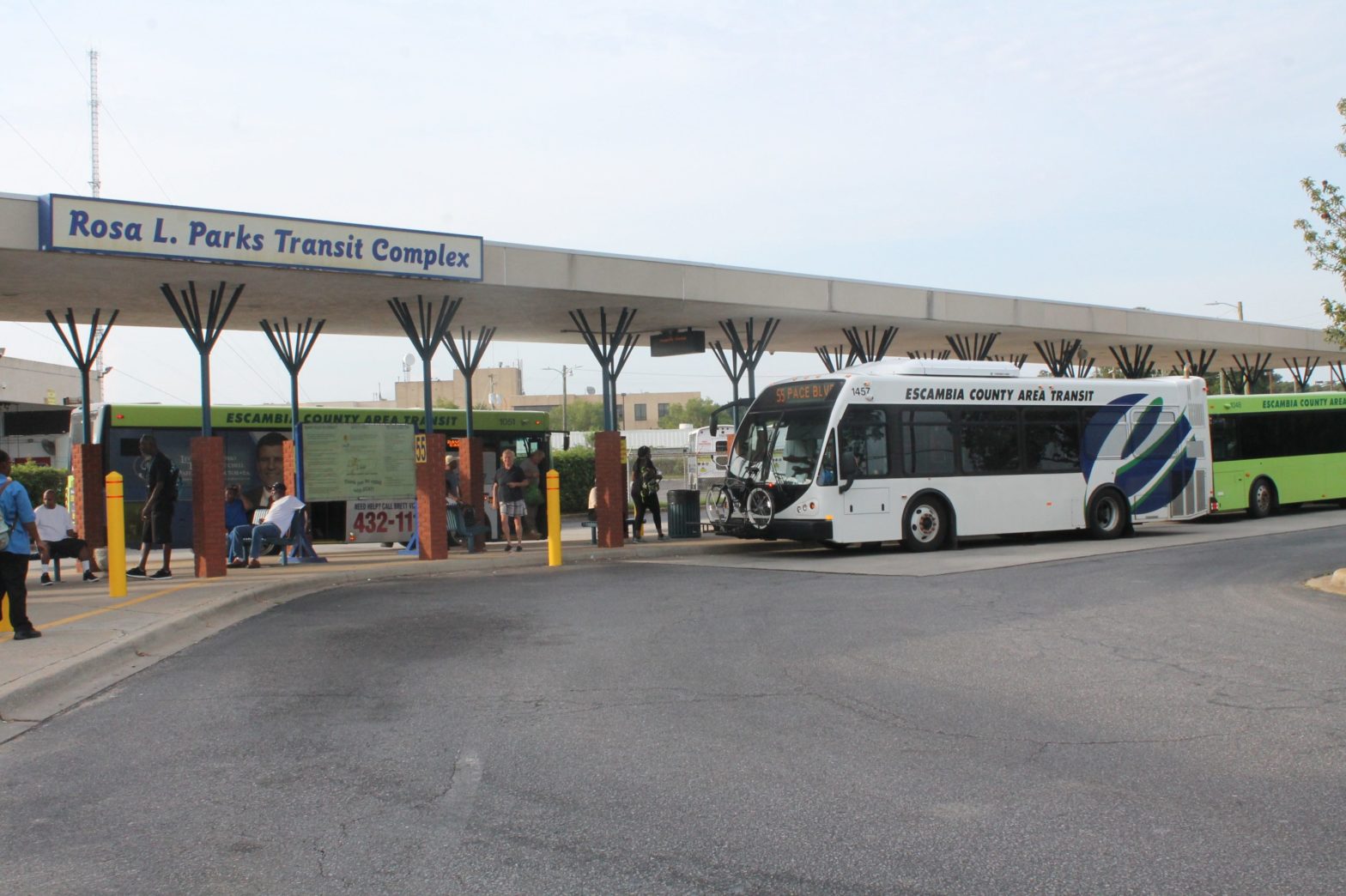![Passengers board Escambia County Area Transit buses. The future of public transit in Santa Rosa County depends on ECAT expanding into Santa Rosa due to ECAT's infrastructure and expertise, according to SRC Interim Planning and Zoning Director Shawn Ward. [AARON LITTLE | Press Gazette]](http://127.0.0.1/wordpress/wp-content/uploads/2022/01/ghows-DA-57130f73-03dc-0500-e053-0100007f3dcf-ac0ef2d2-scaled.jpeg)
MILTON — If Santa Rosa County is going to have public transportation, it needs Escambia County Area Transit, according to Santa Rosa County Interim Planning and Zoning Director Shawn Ward. However, ECAT’s future is in question with the Escambia County Commission.
Santa Rosa needs ECAT for multiple reasons. The county is not a direct recipient for federal transit funds because those dollars go to urbanized areas, not counties. Population density determines those.
“Additionally, ECAT has an existing system that works so there is no reason for Santa Rosa County to reinvent the wheel,” Ward said.
During a May 30 Escambia County Commission meeting, Commissioners discussed ECAT moving under Escambia's control, away from First Transit. Commission Chairman Doug Underhill expressed his concern about the cost to run ECAT and the future need of a fixed-route public transportation system.
ECAT costs $13 million, Underhill said, with riders paying $1 million of the cost. Despite complaints coming down since 2015, a working smartphone application , and state-of-the-art buses , ECAT ridership continues to decline, Underhill said, with some routes transporting one to two passengers per hour.
Public transportation would never pay for itself, according to Escambia County Commissioner Lumon May. It not only serves the most vulnerable population but employs them he said.
“They only pay the people $8 an hour,” he said.
He did agree with Underhill in the need for more efficiency.
While there’s uncertainty of ECAT in Escambia, Ward said, he’s still trying to work with Escambia.
“We’re still trying to make those connections.”
Santa Rosa County would still have to pay 50 percent of operating costs to bring ECAT into the county, according to Ward. With storm water mitigation high among the county’s priorities and the looming Homestead Exemption Bill vote, Ward doubts the county would support this recurring cost.
Meanwhile, the state is reducing funding for the transportation disadvantaged program, which provides transport for medical, employment, or education purposes to the disabled and those who can’t afford their own transportation.
“The state just pulled $86,000 from us on that. They’re cutting funding this year, from what I understand, from all urbanized areas,” Ward said.
Faith transit is on hold as well since Ferris Hill Baptist Church pastor, Brian Nall, left to take a position as the executive director of the Pensacola Bay Baptist Association.
Roughly three years ago, Santa Rosa County Director of Federal Programs Karen Barber helped bring the need for public transportation to the SRC Commission. Despite these challenges, she remains hopeful in local leadership's support for public transportation.
"I think the leadership in our county, the majority, understands that public transportation is a viable ingredient toward having a stable and thriving community," she said.
However, few know the cost to business development in the county for lacking public transportation, according to Barber.
Some businesses looking into SRC have asked about public transportation options, according to SRC Economic Development Director Shannon Ogletree.
"Two to three weeks ago, a customer contact center looked at two sites, one in downtown Milton and one in Pensacola's Industrial Park," he said. "They asked us, 'Where is the bus stop for this site?' We had to say we don’t have a bus stop here. That has come across in other industries before."



This article originally appeared on Santa Rosa Press Gazette: Public transportation on hold in Santa Rosa County
